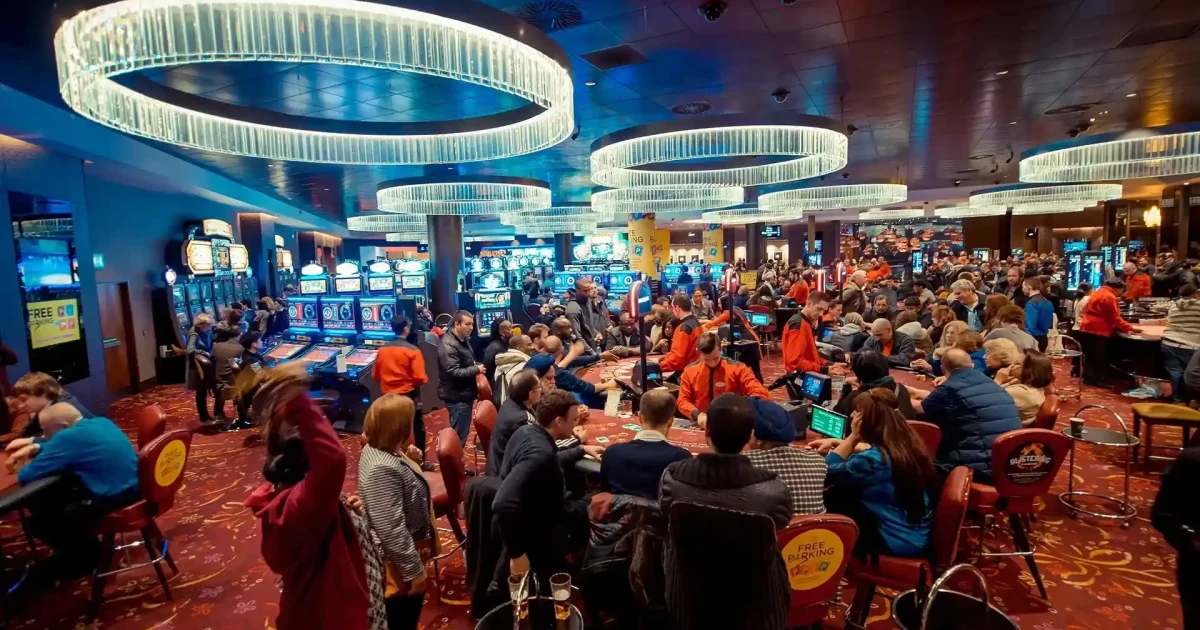The realm of casino gaming has undergone a remarkable evolution in recent times, driven by tech advancements and shifting player tastes. As an increasing number of gamers turn to digital platforms for leisure, conventional casino activities are being increasingly adapted to meet the needs of a tech-savvy consumer base. This transition not just involves the transition from brick-and-mortar to virtual spaces but also encompasses the evolution of gaming mechanics and user engagement techniques.
In this emerging virtual age, game developers are leveraging cutting-edge technologies to create immersive experiences that resonate with a diverse spectrum of players. From online fruit machines with breathtaking visuals to dynamic table games that mimic the atmosphere of a live casino, the modification process is changing how we perceive and enjoy casino games. As we explore this fascinating journey, it is evident that the prospect of gambling lies in the smooth fusion of cutting-edge technology with the timeless appeal of chance and tactics.
A Progression of Casino Games

Casino games have experienced significant changes throughout the years, showing shifts in technology, society, and player choices. In ancient times, basic activities of luck were played using primitive items such as rocks and bones. As civilizations evolved, so did the sophistication of these games. The introduction of playing cards in the medieval period marked a crucial moment, leading to the development of well-known games like poker and 21, which are still played today. Over the years, the physical layout of casinos has also evolved, transitioning from small local venues to expansive, elaborate establishments.
The twentieth century brought about a revolution in the realm of gambling entertainment with the arrival of electronic gaming. Fruit machines emerged as a popular attraction, captivating gamblers with their colorful lights and audio effects. This era also saw the growth of casino resorts, which merged luxury accommodations with a wide variety of casino options. The launch of video gaming further expanded the landscape, allowing for more complex designs and gameplay mechanics. These innovations not only pulled in a broader audience but also changed the way casino games were played.
With the rise of the internet in the late 1990s and beginning 2000, gambling games moved into a new online phase. Online casinos appeared, providing participants with the convenience of gaming from their homes. This transition required gaming designers to reconsider traditional mechanics and modify them for an interactive online experience. Today, advancements in technology, including smartphone gaming and virtual reality, continue to shape the progress of gambling games, creating engaging experiences that captivate players like not before.
Key Features of Online Casino Games
Virtual gambling experiences have changed the way players engage with the gambling experience by offering captivating experiences that replicate the excitement of physical casinos. One of the most notable features is the incorporation of high-quality graphics and animations, creating a visually captivating environment. Giới thiệu bongdalufuni.com Designers focus on offering authentic themes and compelling storylines that draw players into the game, improving their overall experience. The capability to provide 3D visuals and stunning sound effects means that players can savor a vibrant atmosphere comparable to what they would find on a casino floor.
Another essential aspect of online gambling games is the ease of access they offer to players globally. Online platforms enable individuals to play their favorite games from the comfort of their own homes or on the go through smartphones and tablets. This flexibility is accompanied by a diverse selection of gaming choices, including slots, card games, and live casino games. Players no longer need to drive to a brick-and-mortar venue to enjoy their beloved betting experiences, allowing a wider audience to engage with gambling experiences.
Lastly, virtual gaming experiences frequently include cutting-edge features such as engaging gameplay and social interactions. Many games now allow players to compete against one another, enter tournaments, or even post their accomplishments on social media. This shift encourages a sense of belonging among players while fostering positive competition. Additionally, features like customizable avatars and in-game chat options enhance social interaction, making the digital gaming experience even more enjoyable for all users.
The Future of Digital Gaming
As technology advances, the landscape of online gaming is preparing for significant transformation. Immersive and enhanced reality are making waves, offering players an engaging adventure that reflects the thrill of being in a brick-and-mortar casino. These advancements create opportunities for creators to introduce new game formats and dynamic elements, reshaping how players interact with their preferred casino games.
Additionally, the integration of artificial intelligence is improving user experiences and personalizing gameplay. AI can assess player behavior, offer tailored game options, and improve customer support through chatbots. This tailoring not only retains players occupied but also contributes to build a loyal community around particular casino platforms, positioning them for success in a competitive market.
In conclusion, the rise of mobile gaming is another vital factor shaping the future of online gaming. With an constantly rising number of players enjoying casino games on their phones, creators are concentrating on optimizing their platforms for mobile access. This shift allows players to experience casino games anywhere, paving the way for a more versatile and accessible gaming environment that appeals to a larger audience.